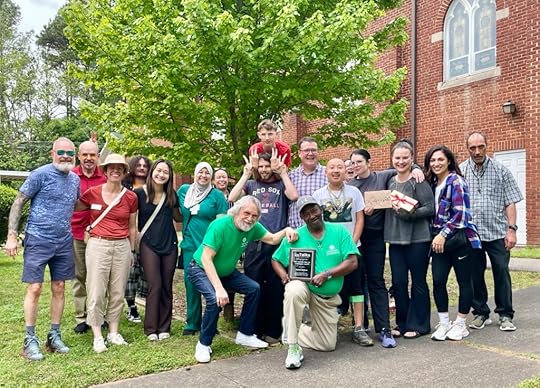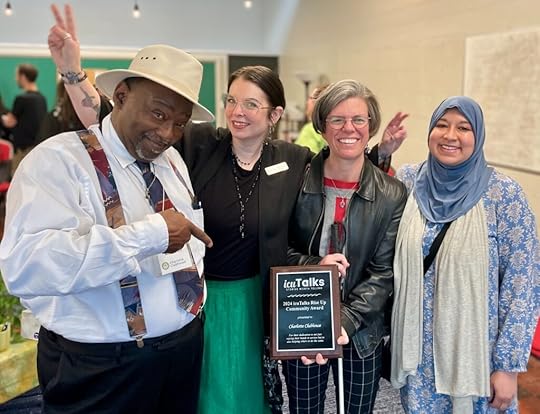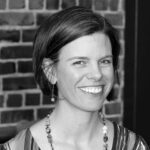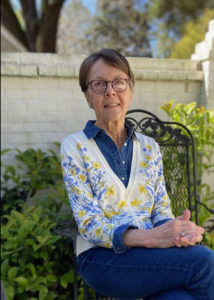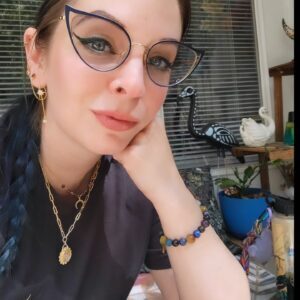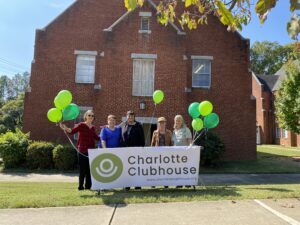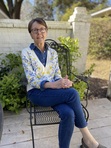Linda Vigen Phillips's Blog
October 14, 2025
CHARLOTTE CLUBHOUSE: On Pause, NOT Closed
Dear Friends,
On behalf of my friends at Charlotte Clubhouse, I am sharing the news that the board released this week. The emphasis on NOT CLOSED is mine, to emphasize that this vital organization has not closed, but is merely on pause. Here follows their official announcement:
When we first opened in 2022, Charlotte Clubhouse served a small group of dedicated members in a shared space. Within two years, attendance more than doubled. Members found purpose, connection, and confidence. But without a permanent space, we had to pause operations—and our members lost their daily source of support.
Now, it’s time for our next chapter — and we need your help to make it happen.
A Place to Belong: Building the Future of Charlotte Clubhouse
Together, we will raise $300,000 by June 30, 2026 to create a permanent, ADA-compliant space that meets North Carolina DHHS and Clubhouse International standards — and allows us to reopen five days a week.
Your support will help us:
Secure a permanent, accessible home for our membersUpfit and license the space to meet safety and accessibility standards ($100K)Furnish and equip our new location with welcoming, functional spaces ($20K)Purchase a Clubhouse van to help members access employment and community ($60K)With your help, Charlotte Clubhouse can once again open its doors to provide belonging, connection, and recovery.
CC has entered a technical assistance partnership with MONARCH, a strong, stable mental health organization. Pending a successful campaign, CC will join Monarch as an auspice organization, in which CC will maintain commitment to the clubhouse model and its unique identity while Integrating within a stable, 67-year-old organization to support long-term program stability, sustainability and growth.
Click here to Support Us Today!Prefer to Mail Your Gift?Make checks payable to Charlotte Clubhouse and send to:
PO Box 8022
Providence Rd, Suite 500-104
Charlotte, NC 28277
Include “A Place to Belong Campaign” in the memo line.
Charlotte Clubhouse is a 501(c)(3) nonprofit organization. EIN: 87-2371208
More ways to Support!Did you know many companies offer matching gift programs? Your donation could be doubled—at no extra cost to you. Check with your employer to see if they’ll match your gift!Please forward this invitation widely to anyone you think would be interested in partnering with us to achieve our goal!Follow us on social media**********************
Thank you for Believing in Belonging! The fundraising co-chairs Melissa O’Lenick (board1@charlotteclubhouse.org) and Megan McCann (secretary@charlotteclubhouse.org) would love to connect with you about campaign support or partnership opportunities. In closing, here is a picture of members receiving the “Rise Up” award from ICU Talks in Charlotte in 2025. What an honor to be recognized by another local organization that shares similar mission and values!
Until next time,
Linda
The post CHARLOTTE CLUBHOUSE: On Pause, NOT Closed appeared first on Linda Vigen Phillips.
July 31, 2025
Charlotte Clubhouse Update
Today I am pleased to welcome Megan McCann, my good friend and fellow co-founder of the CHARLOTTE CLUBHOUSE, a unique psychosocial rehabilitation program for persons with mental illness.
L -Megan, tell us a little about how your career path led you to become involved with the Charlotte Clubhouse.
M – I am an Occupational Therapist. My favorite area of practice is mental health, and I believe OT should address mental health and wellness in any setting. I also believe that the field of OT is underutilized in a variety of settings, including in Psychosocial Clubhouses. The focus of Occupational Therapy is what a person, group, or population wants or needs to do (occupations). Our job is to address barriers that prevent people from doing the things they want or need to do. In the case of a Clubhouse, members are given opportunities and encouragement to do things they might not do otherwise, for reasons such as stigma, anxiety, financial constraints, or fluctuation of symptoms. I believe OT and the clubhouse model are intrinsically aligned, so when you and David Boyle proposed starting a clubhouse in Charlotte, I was intrigued by the idea and felt that I might contribute a unique perspective to this new organization.
L – And we are incredibly grateful that you followed your instincts! Charlotte Clubhouse opened in October 2022. While I was directly involved in operations that first year, give us your perspective on what the program is all about and how it has evolved since its inception to the present moment.
M – The most unique part of the clubhouse model is the Work-ordered Day. From day one, Charlotte Clubhouse has been intentional about putting Clubhouse International standards into practice. Standard #16 states, “The work done in the Clubhouse is exclusively the work generated by the Clubhouse in the operation and enhancement of the Clubhouse community.” When we first opened, we had volunteer staff and were open just one day per week. We were able to adhere to standard 16 by collaborating with members to determine what needed to be done and focusing on the strengths of each of the members. For example, one member had janitorial experience and trained the staff and volunteers on proper cleaning techniques. Members have truly shaped the structure of the Work-ordered Day at Charlotte Clubhouse. As we grew in membership and opened two days a week, members invested in the structure and ultimately were responsible for over 90% of the needs completed each Work-ordered Day.
Since the first week of June this year, the Charlotte Clubhouse has been on pause. While this was not our first choice, we recognized that our success and growth warranted a new space that would be our sole property (rather than sharing with other groups), would be ADA compliant (no stairs, accessible bathrooms, etc.), and would enable us to be licensed so that we could start to bill Medicaid and other insurance. While we were able to operate for 2+ years in a rented space with generous donations, the model was not sustainable without a consistent income source.
L – As you just mentioned, the program is on pause right now, with exciting plans in the offing. What can you tell us about those plans?
M – We have been working with a well-established Behavioral Health group that has agreed to help us in this next phase. Right now, they are offering technical assistance and loaning their expertise and resources so that we can raise funds and find a suitable new space. We plan to launch a fall campaign to raise funds for securing and upgrading a facility that meets licensure and Clubhouse International standards, aiming to open with enough paid staff to operate five days a week. Our first task will be to find sponsorships and then we will organize fun events that will not only raise funds but also increase awareness of our project.
In the meantime, we are staying connected with members by meeting virtually once a week and in-person once per month. Several members are taking an active part in the transition process, helping with the location search, fundraising, and marketing.
We have a newly elected board of directors, bringing fresh perspective and passion for the project, as well as two Clubhouse members. A silver lining of the pause has been a heightened awareness of the uniqueness of Charlotte Clubhouse. Members have expressed that they miss the community and structure of Charlotte Clubhouse and are very much looking forward to returning to the community in a new space.
L – I know there are many folks in the community who want to make sure that Charlotte’s first and only Clubhouse continues to be available for all persons with mental illness. What are the needs now and going forward, and what are the best ways to help?
M – We appreciate the tremendous support for Charlotte Clubhouse. Everyone who was able to visit our first location recognized the value and gave us lots of encouragement. Right now, the biggest need is raising funds for our new space. Although we have not officially launched our campaign yet, if you are interested in being a sponsor, please reach out to me at secretary@charlotteclubhoue.org. We are always accepting donations, large or small. There is a portal for general donations on our website: https://www.charlotteclubhouse.org/support. Or, if you’d rather send a paper check, our PO Box is 8022 Providence Rd, Suite 500-104, Charlotte, NC 28277
My thanks to you, Megan, for this update on the progress of Charlote Clubhouse. And thank you, readers, for your continued support of this unique program that changes the lives of persons who have struggled with mental illness.
Until next time,
Linda
The post Charlotte Clubhouse Update appeared first on Linda Vigen Phillips.
May 29, 2025
MENTAL HEALTH AWARENESS~ALWAYS
The “official” Mental Health Awareness Month of May ends soon, but I’m for making it ALWAYS. With that being said, I want to celebrate the work and the members of my favorite mental health nonprofit, (CHARLOTTE CLUBHOUSE) beginning with its mission statement:
To facilitate wellness, happiness, a sense of achievement, and a stable quality of life through meaningful work, supportive community, and creative endeavors for individuals impacted by mental illness.
Now almost three years since its inception, the success of Charlotte Clubhouse shines brightly through the achievements and important life milestones of its members. To be clear, the Clubhouse gives all the credit to each individual for what they have accomplished. But the mission statement and the following testimonies reflect the value of a supportive and intentional community that offers members the opportunity to find wellness, meaningful work, a sense of achievement, and a stable quality of life. I asked two of the members to share their recent successes using the following three questions, and their responses follow below:
What drew you to the Clubhouse? Specifically, what was going on in your life that contributed to your being attracted to the Clubhouse? What impact did the Clubhouse have on you, your mental health, your challenges in the beginning? What recent event or milestone in your life are you celebrating, and how did being connected to the Clubhouse affect this process?PHOENIXI had just gotten out of a treatment facility and was looking for places to volunteer and spend my time during my gap semester. I tend to thrive more in in-patient environments. While Charlotte Clubhouse isn’t exactly that, it was a place that I could go once a week and interact with people who faced similar mental health challenges.
The Clubhouse added much needed structure in my week, and I had something to look forward to. I began to bond with a lot of the members, and I started bringing in my guitar to play music for people during lunch. It also helped to be of service to people and get out of my own head.
I recently got a few milestones. I turned 25, I picked up 2 years of sobriety and finally graduated with a B.S. in Psychology from UNCC. I couldn’t have done it without the love and support I’ve received from Charlotte Clubhouse. The community I gained from joining was one of the things I had been missing in school since COVID happened, and it made a big difference. A big thank you to Kristin, Mick, and Lucas, alongside all the members who got me to where I am today.
TARANNUMIt was a time when it was impossible to get along with loved ones but love for children inspired self-betterment at all costs. When the confinement of the hospital was the only retreat to focus on what you need, willing to take most abhorred medications, that are really forced there, for any opportunity to achieve long awaited milestones. After multiple hospitalizations in about every hospital in the state, now back-to-back, with all the people I could relate to, I was referred by Monumental Coaching to the Charlotte Clubhouse.
Whether it was the warmth of the jacket given in the cold, the delightful greeting of fellow members, a hug full of love, genuine help with struggles, and caring support all along the way, the Clubhouse became a community unlike ones I never managed to stay in, a place where I belonged.
The Fountain House model that the Clubhouse operates on with a work-ordered day assigns us the simplest of tasks to regain confidence in what we can do, help, serve, and achieve together, like watering a plant or entering our hours into the laptop. When we are used to fearing white noise hallucinations, it is possibilities, hope, love, and joy that we experience cooking together, eating together, and cleaning together in what becomes our second home.
I have, with the Clubhouse by my side, achieved a Bachelor of Science in Biology, Bachelor of Arts in Philosophy, and Minor in Cognitive Science from the University of North Carolina at Chapel Hill, and I have learned to believe in me, Faith, and Love, and to not stop. This, after a twenty-year college journey through unchecked bipolar and major depression, prodromal paranoia snowballing into anxiety from delusional perception. An unreal world of messages from everyone and everywhere absolutely isolating, until forced treatment and then unregulated withdrawal from the meds, ending up with auditory, visual, tactile hallucinations and possession-like movements. I have ultimately adjusted to side-effects and medicinal incapacitating sedation, having missed out on so much life and time and ability to study, to read, to think, to write.
Congratulations to Phoenix and Tarannum (who chose to show her cap!) for all their accomplishments and willingness to share their stories. We wish them every success going forward.
Until next time,
Linda
Charlotte Clubhouse is one organization that works to help stabilize persons with mental health issues. Click here to find out more about their vital work and how you can help restore lives that have been interrupted by mental illness.
The post MENTAL HEALTH AWARENESS~ALWAYS appeared first on Linda Vigen Phillips.
April 1, 2025
APRIL IS POETRY MONTH
 Ah April! The special month dedicated to the celebration of poetry. As a lover of this form of writing, I am delighted to find poems in a wide variety of formats and styles saturate our environment like the flowers of Spring. Throughout the month, it’s not hard to gather a special bouquet of favorite works shared by other enthusiasts online or here and there in plain sight.
Ah April! The special month dedicated to the celebration of poetry. As a lover of this form of writing, I am delighted to find poems in a wide variety of formats and styles saturate our environment like the flowers of Spring. Throughout the month, it’s not hard to gather a special bouquet of favorite works shared by other enthusiasts online or here and there in plain sight.
My personal relationship to this art form is bittersweet. At an early age reading and writing poems provided the outlet that kept me anchored while I watched my mother unravel with bipolar disorder. Later, as a new mother with children of my own, poetry was the vehicle that enabled me to process the trauma and emotional challenges of all those growing-up years. After a number of what I called “my mother poems” were published in various literary journals, I pulled them together and reworked them into my debut Young Adult novel in verse, Crazy, first published in 2014.
Some years after Crazy’s publication, I was devastated to learn the rest of the family story that had been kept from me. My father, who had been my rock, the one who nurtured me through my mother’s illness, had violated my half-sister as a teenager. She kept this secret from me all her life, and made her husband promise to tell me after she was gone. He did so shortly before his own death. Once again, I desperately needed to process this traumatic information, and I naturally turned to poetry.
I guess you could call my chapbook, Thoughts at Crossings, “my father story.” Because it came out just as we relocated to a new community, and because there was some family pushback, I never really launched it. My original intention to reach out to anyone who has been in an abusive situation still stands. You can purchase it here, OR if you will contact me at linda.phillips4866@gmail.com and commit to writing a brief review (several sentences will do) on Goodreads, I will send you a free digital copy.
Poetry lingers in the April air. Breathe it in and enjoy!
Until next time,
Linda
It is not uncommon for persons with mental illness to have experienced some form of abuse in their life. Charlotte Clubhouse is one organization that works to help stabilize persons with mental health issues. Click here to find out more about their vital work and how you can help restore lives that have been interrupted by mental illness.
“Medicines and surgery may cure, but only reading and writing poetry can heal.” – J. Arroyo, author
The post APRIL IS POETRY MONTH appeared first on Linda Vigen Phillips.
February 7, 2025
Carol Baldwin Talks About HALF-TRUTHS
L – Today I welcome my longtime writing buddy and best friend, Carol Baldwin, who is excitedly awaiting the release of her debut YA novel HALF-TRUTHS. Congratulations, Carol! I understand that birthing this book has been a long journey. What did you originally set out to write about and how, if at all, did that change along the way?
C – I was curious about what it was like in Charlotte before civil rights and thought I would write about that. At my first Highlights workshop (that you and I attended together in 2009!) I was fortunate to have Harold Underdown as my mentor. When I told him I was writing a book about Charlotte before civil rights, he told me that was only my setting. He encouraged me to find out what my character wanted. I remember being blown away by that simple yet profound advice.
It took me years digging into my protagonist, Kate’s past and finding her story to answer Harold’s question. Once I settled on what was driving Kate, I could shape the book. There were many outlines and drafts in the process. In addition, since the time period is the Jim Crow South, I knew there were racial issues that would be addressed. Over time I realized that most of that racial struggle was not my story to tell. As a result, HALF-TRUTHS became more about Kate’s journey to find her voice as a budding journalist, rather than a book about racial relations.
L – What message do you want readers to take away from your book?
C – Don’t push family secrets under the rug. A person’s past influences their present. Whenever possible, open communication is best.
The theme of half-truths runs throughout the book. Kate not only uncovers deceptions that have been passed on in her family, but she also comes to grips with her own half-truths. Lillian, an important secondary character, is a teenage Black maid who works for Kate’s grandmother. The two girls bond over Kate’s goat, and while building that friendship, Kate frequently stumbles. In a major turning point, Kate alienates Lillian by publicly saying a half-truth about her. It is only when Kate admits what she did and communicates her genuine regret to Lillian that their friendship is reconciled.
As the story progresses, Kate discovers secrets about her family’s ancestry. She wants to talk about them to her stern grandmother— the lynchpin in the puzzle—but she’s afraid. At the end of the book, she broaches the topic as the two plant a garden together. Kate’s hunch about her ancestry is validated as she breaks through walls that have existed for decades. She is then freer to speak her voice and move forward without debilitating fear.
L – DEI has come under attack in recent days, and President Trump is eliminating many programs that will have possible negative impacts on persons of color. Your protagonist, Kate, was outspoken and strong-willed. How do you think she might react if she were around to see this today?
C – I think she would want everyone to be treated equally. Like she says in HALF-TRUTHS, “Of course, all men are created equal! That’s what is written in the Bible and the Declaration of Independence!” She’d be glad to see the progress since 1950: she didn’t experience integrated schools, parks, restaurants, or sports teams. She would want this to continue—that the same opportunities would be available to both Blacks and Whites.
L – Lastly, you know I write about mental illness. Is there any part of Half-Truths that resonates with mental health issues?
C – Definitely! Families that deny or bury secrets often pass along burdens to subsequent generations. These “half-truths” lead to shame, guilt, fear, and resentment. In turn, carrying around those burdens can result in miscommunication, failed relationships, poor decision- making, anxiety, depression, or worse.
L – Thanks for stopping by, Carol, and we wish you all the success with your book rollout! For more information about how to order Half-Truths and to follow Carol on social media, click here.
And to you, my friends, thanks for tuning in to this newsletter, where mental wellness thrives.
Until next time,
Linda
The post Carol Baldwin Talks About HALF-TRUTHS appeared first on Linda Vigen Phillips.
December 13, 2024
December 2024 Newsletter
As many of you know, I am partial to novels-in-verse and realistic fiction
that address mental or physical health issues. A friend recently
recommended Sandy Whiting’s verse novel, Flight, that piqued my interest on
both accounts.
On the morning of her thirteenth birthday, Cassie Fowler’s world was close
to perfection. The delicious aroma of chocolate pancakes drew her
downstairs where her close-knit and adoring family waited in eagerness for
her to choose the day’s activities. Who would guess that two years later
the picture-perfect scene would be shattered by her father’s death from
cancer, her mother’s subsequent addiction, and the strained relationships
that developed between Cassie and her siblings as each struggled with the
unraveling family.
Now fifteen, Cassie seethes with resentment over the substitute-mother role
she has had to assume as her own mother fights a losing battle with
addiction.
I was being pulled under, too, only
no one was trying to save me.
Courtney, Cassie’s younger sister and once best friend, has lost most of
her friends because they were not able to deal with her grief. Her younger
brother, Jeremy, has found refuge in a new obsession of digital gaming that
creates a convenient distance from all things family.
Through realistic and often lyrical free verse, Whiting reveals Cassie’s
struggle to maintain a semblance of normalcy with coping mechanisms that
include keeping her mother’s problems a secret, questioning whether she
wants to call her “Mom” at all, and tuning out at school. When Mr. Johnson,
the science teacher, launches a unit on butterflies and the process of
metamorphosis, Cassie begins to listen. The class becomes her refuge,
especially on the morning when her mother abruptly announces she is leaving
for an undisclosed place and indefinite amount of time for addiction
recovery.
Neither Cassie nor her siblings knew much about their next-door neighbor,
Mrs. Lee, before they learned she would be their caregiver during their
mother’s absence. It isn’t long before this wise and gentle widow begins to
melt away the bitterness and anger that Cassie has harbored for many
months. Courtney and Jeremy pick up the positive vibes as well. Cassie
returns to calling her brother “Jerm.”
We both giggle. A forgotten, foreign sound,
and in this moment – the most beautiful
sound I’ve ever heard.
Mrs. Lee lays the groundwork for the healing that must take place when
their mother returns home. She encourages Cassie to talk out her feelings,
write down her thoughts, and together the temporary family of four plants a
memory garden. Whiting does a good job of portraying the inevitable
mistrust and anger that Cassie experiences when her mother does return
home, and the realistic questions she has about her mother’s rehab
treatment and the expectations going forward.
Cassie weathered very difficult circumstances in her early teen years. The
free verse format was an effective tool to allow the reader into her head
and heart with ease and empathy. Whiting addressed the issues of early
parental death and addiction with skill and sensitivity. Young readers who
have been through or are going through similar circumstances will easily
relate to Cassie’s struggles and find hope in what she learned by studying
butterflies.
I’ve been in my very own chrysalis
for two years, ever since that fateful
day we received Dad’s diagnosis. But maybe,
just maybe, I’m closer to breaking free.
Surprisingly, I think I’m actually excited for
who might emerge.
Books like “Flight” remind us how important good mental health is and how
the stability of a family can be impacted when one member is suffering.
CHARLOTTE CLUBHOUSE is one organization that works to help stabilize
persons with mental health issues. Click here to find out more about
their vital work and how you can help restore lives that have been
interrupted by mental illness.
Thank you for dropping in.
Until next time,
Linda
“Not until we are lost do we begin to understand ourselves.”
― Henry David Thoreau.
The post December 2024 Newsletter appeared first on Linda Vigen Phillips.
October 30, 2024
October 2024 Newsletter
When you think of a clubhouse, you might think of where you hang out for a meal or a drink after a vigorous round of golf. Or, if you are of a certain age, you might recall the 1952 cover of The Saturday Evening Post featuring Norman Rockwell’s version of a boys’ clubhouse proclaiming, “no girls allowed.” While vastly different in style and approach, both scenes have in common a social space for members to gather and share a sense of community and camaraderie.
A bit of historyIn 1948 in New York City, another version of a clubhouse quietly took root, and that’s where this story begins. Fountain House, the “Mother ship” of the clubhouse model, evolved from a self-help group of former patients of Rockland State Hospital and a handful of determined volunteers.
At about that same time, John Beard, a young social work graduate student working with patients suffering from severe and chronic schizophrenia, began applying the methods of a reform-minded young psychiatrist named Arthur Pierce. Departing from the usual focus on the patient’s symptoms and etiology, they believed that much of the suffering that persons with severe mental illness encountered was due to isolation and the loneliness that resulted from estrangement from family, job losses, aborted education, homelessness, and inability to form meaningful relationships. (Read the story here)
From AGT to WODThey began to practice what became known as AGT (Activity Group Therapy), designed to restore the social functioning of the patients and possible assimilation back into society upon discharge. Those first steps have evolved into the signature program of all clubhouse models, called the Work-Ordered Day (WOD). Today there are over 350 clubhouses in over 30 countries globally, including the first and only clubhouse in Charlotte.
Enter CHARLOTTE CLUBHOUSECharlotte Clubhouse opened for business as a non-profit on Oct. 18, 2022, at its present location in the Fellowship Hall of Commonwealth UMC, 2434 Commonwealth Ave. It recently celebrated its second anniversary with the First Annual Gala, “Breaking the Stigma: Celebrating Mental Wellness in Mecklenburg County,” held at the Uptown Mint Museum.
The Clubhouse model is a unique, data-driven, non-clinical program that creates a safe place for members to participate in socialization, relationship development, and skill-building. Most importantly, it restores a sense of dignity and self-worth to those whose lives have been disrupted by mental illness. Membership is free and lifelong; attendance and participation in the Work-Ordered Day is optional. It doesn’t take long for members to reap the benefits of working side-by-side with staff, volunteers, and other members to accomplish the operational tasks of the day. In a nutshell, the members run the show and even have representation on the Board of Directors.
We should pause to take note of a common thread here so far. Mental wellness requires socialization and a sense of community. (We can take issue with Norman Rockwell’s gender discrimination another day!) In their weekly newsletter, members attribute the positives in their lives to Clubhouse membership:
I started a comic book company and I have an investor! -AlexI’m finally getting my sleep schedule under control! -KamrynBeing able to communicate with people and make great relationships! -KevinI’ve had so much growth since I’ve come here! I found Nathan again! -NathanI have made great progress in overcoming social anxiety.-AsaMembers become like family to each other, and Charlotte Clubhouse celebrates those bonds every day it is open, currently Tuesday and Thursday from 9-4, with selected offsite excursions on a third day. While it is still in the start-up phase, major goals in the Clubhouse strategic plan include being open five days a week, acquiring a van, and initiating a capital campaign towards its own facility.
If this article sparked an interest in donating financially to the Charlotte Clubhouse, click here or here.
If you would like to become a Clubhouse volunteer click here.
If you would like to visit the Clubhouse or have questions, call Kristin Varnell, the Operations Manager at 704-605-7032 and be sure to visit the website www.charlotteclubhouse.org
Thank you for tuning in to this newsletter, where mental wellness thrives. Until next time,
Linda
The post October 2024 Newsletter appeared first on Linda Vigen Phillips.
September 7, 2024
September Newsletter
1.Charlotte Clubhouse is a unique, evidence-based program serving persons with mental illness in over 350 countries around the world. Yet, most people know little, if anything, about it. How did you hear about it, and what was the spark that caused you to consider it as a career option?
A little background about me—I have always had a fascination with mental health due to my own struggles, which led me to obtaining a degree in Psychology in 2009. Post-graduation, I struggled with deciding what aspect of mental health I wanted to work in, but knew I would need further education to advance in the field. I spent many years teaching, including special education. I absolutely loved the one-on-one aspect of helping each child reach their goals, which is what got me interested in pursuing a career in Occupational Therapy. I was accepted to the OTA program at CPCC and immediately felt I was where I was meant to be.
I heard about the Charlotte Clubhouse while I was in school. Megan McCann, one of the founding members of Charlotte Clubhouse, was the instructor for our Psychosocial class. After graduating from the program in December, Megan asked me to consider volunteering with and possibly working for the Charlotte Clubhouse. At the time, I was studying for the board exam to obtain my license and looking for jobs. I agreed to volunteer in February, and the rest is history. Again, I had the peaceful feeling that I was where I was meant to be. It only took one trip to the Charlotte Clubhouse to fall in love with the clubhouse model and the members there. I began part-time in February, and by March, I knew I was “all in” and would stay. I took a risk on a new non-profit company, and I have no regrets. The Charlotte Clubhouse is an awesome place, and its members have become family. I truly believe in what I do and am in the type of field where I am constantly learning and growing. What could be better?
2. Tell us about your background. Were you headed in the direction of this line of work, or did Charlotte Clubhouse cause you to alter your course?
I pretty much answered this with the prior question, but to get deeper into it, I had a level 2 fieldwork experience working as an OTA student in acute mental health at Behavioral Health Davidson, and from that experience I knew I could work with adults in a mental health setting. Prior to that, I was sure I’d be working with kids either in a mental health setting or by addressing mental health in a pediatric outpatient setting. I knew post-grad that finding a job in mental health as a COTA (Certified Occupational Therapy Assistant) would be difficult and would take time. Except…it wasn’t, and I was placed right where I belonged. Did the Charlotte Clubhouse alter my career course? Slightly! Special thanks to Megan for patiently “hunting” me down for the job while I was trying to decide what I needed and where I belonged in my new career. It feels good to be seen for my talents and work ethic.
3. Tell us about a typical day at the Clubhouse. Describe what the work-ordered day (WOD) looks like.
At CC, members begin arriving between 8:45-9:00. Our current rental space has rooms upstairs that are inaccessible for many members, so we bring everything downstairs that we need to run the program and begin the WOD.
What is a WOD? It is the signature piece of the international Clubhouse Model where members, volunteers, and staff work together to complete tasks, such as cooking lunch, cleaning, entering data, gardening, etc. Each task is broken down into parts, so there is enough work for everyone who wants to participate.
Members are encouraged, but not required, to participate in the WOD. Some tasks are meant to target certain skill sets, such as social media/newsletter posts for creative types who are comfortable with technology. Members can build their skill sets in any area they’d like, depending on their personal goals. For example, one member expressed an interest in learning how to cook, so he began learning from other members and volunteers. The point of the WOD is for members to experience personal growth, find satisfaction in what they do, and learn how to work as a team. This leads to members obtaining and keeping jobs, housing, and relationships.
My favorite part of the WOD is when I see members teaching other members. We all have experiences and talents that we can share with others. Besides the daily tasks, we have group meetings to check in with each other, provide opportunities for socialization both inside and outside of the clubhouse setting, and have weekly workshops on a myriad of topics, led by members/volunteers/community partners. It’s great to be able to offer a safe place for people to come. We all need support, and the Charlotte Clubhouse is a great place to find it.
4. Working with persons with mental illness offers both challenges and rewards. Talk about a moment that has left an indelible imprint on your heart.
Anyone working in mental health knows that every day is different and unpredictable. I quite like the fast-paced environment and organized chaos that comes with the job.
Of course there are difficult moments, but we all struggle with mental health in some way. It’s important for anyone working in mental health to have patience, remain open, and have their own self-care routine in place to leave the more difficult days and situations at the door.
I had a fulfilling, full-circle moment with a dear member of the clubhouse. I met them at their “worst” while I was doing my level 2 fieldwork in acute mental health. I got to see them improve and discharge from the facility, only to meet them again the following February once I began working at CC. They remembered me and thanked me for helping them at the hospital. They had been writing a daunting paper to finish out their Bachelor’s degree. At CC, I was able to help them edit the paper. I’ll never forget the relief and pride in their voice when they called me to tell me that, after years of work, they had submitted it. I was so proud. Now they have a great job and I hope they read this and know that they are amazing and inspiring. To anyone living with mental illness: it may be difficult to meet your goals, but with the right people by your side, you can do anything. You may see a mountain, but we see you, your skills, and the steps you need to take to climb that mountain. Let’s go, together!
5. Charlotte Clubhouse, like most clubhouses, has started small, currently open only one day a week with the goal of a full five-day-a-week operation. As Operations Manager, what do you see as the greatest challenges towards the realization of this goal, and how can members of the community become involved?
The greatest challenge is, you guessed it, funding. We (the board, members, and I) have been working hard to raise money for the clubhouse. One of my goals is to get the clubhouse out into the Charlotte community, so people know who we are. We have begun that by doing community outreach (such as walking in the Pride parade), making partnerships, and by volunteering in the community (we recently volunteered with Second Harvest Food Bank). We have just begun offering services 2 days a week, Tuesdays at the clubhouse, and Thursdays off-site. To expand to 5 days, we need funding. Our goals are large, but obtainable. We aim to build our own clubhouse and provide transportation for members who aren’t able to drive. We are having our first annual gala, “Breaking the Stigma: Celebrating Mental Wellness in Mecklenburg County” on October 3rd. Check out charlotteclubhouse.org for more information about the gala and how to donate to our cause, or email me at info@charlotteclubhouse.org for more information!
6. Anything else you would like to share about your Clubhouse experience?
Do you or someone you know live with mental illness in the Charlotte area? Check us out. Everyone who comes to take a tour leaves with a smile and returns repeatedly. Once you become a member, you’re a member for life, even if you are unable to attend the clubhouse with regularity. As I stated before, we are a family. We still check in and reach out to CC members who we haven’t seen in a while. You don’t have to be alone on life’s journey. Check us out for yourself!
Thank you, Kristin, for sharing your Charlotte Clubhouse experience with us. As one of the founders, I so appreciate the great job you are doing for us, and I join you in inviting readers to look into what we do and what they can do to invest in this vital work.
Until next time,
Linda
The post September Newsletter appeared first on Linda Vigen Phillips.
July 29, 2024
July 2024 Newsletter: From Crazy to Clubhouse
The official re-release of my debut book, Crazy, is just a few days away, and I’m honored that my publisher, Eerdmans Books for Young Readers, deems it worthy of such attention. The world is not the same place as it was ten years ago when the book first came out. The need for mental health advocacy in this post-Covid era is greater than ever, and continuing the dialogue about positive pathways to rehabilitation and recovery for those suffering from mental illness strengthens the fabric of our society. I’m energized that my story of how one teenage girl in the sixties searching for answers to understand her mother’s bipolar disorder can further the conversation and fight the stigma of mental illness in the twenty-first century.
In my own journey, writing Crazy has led to a plethora of blessings and opportunities I could not have imagined ten years ago. Plugging into advocacy groups like National Alliance on Mental Illness (NAMI) was my first stop, which led to facilitating a monthly drop-in center called Providence Place for persons with mental illness and their families. It didn’t take long to realize that a monthly program wasn’t enough, and when two other advocates and I brainstormed the possibilities, the Clubhouse International model began flashing on our mutual radars.
In October, 2022, the three of us and a handful of volunteers launched Charlotte Clubhouse, a nonprofit, evidence-based program that offers persons with mental illness a safe place to gain self-efficacy, form meaningful relationships, experience socialization, develop new skills, and acquire a more stable quality of life. I will be featuring the members and the management of the Clubhouse in future letters. Before then, I hope you will check out our website, subscribe to the wonderful member-crafted newsletter, and consider supporting the cause with a donation.
Until next time,
Linda
The post July 2024 Newsletter: From Crazy to Clubhouse appeared first on Linda Vigen Phillips.
May 29, 2024
May 2024 Newsletter
Catching Up with Linda
May 2024


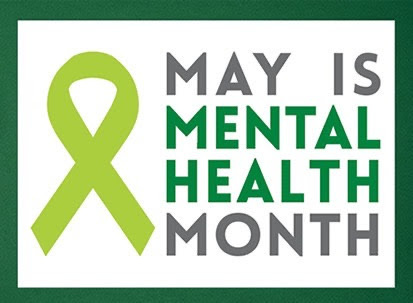
May is coming to a close, but the need for better mental health and awareness hasn’t stopped. You are receiving this message because in some way, our paths have crossed and you likely know that I have been an active mental health advocate since 2014 when my debut novel, Crazy, was published. It is a semi-autobiographical account of my experience with a mother who had bipolar disorder.
My publisher, Eerdmans Books for Young Readers, has chosen to re-release the book on July 30th of this tenth-anniversary year, acknowledging the post-Covid uptick in mental illness across all age groups, and particularly among young adults. The story remains the same, with a brand new cover and new back material, including an author interview and mental health resources. If you haven’t already read it, I hope that you will, and if you are familiar with it, perhaps you can recommend it to a book club, school, library, or someone who might connect with the story.
I invite you to join me through this quarterly newsletter to explore ways you and I can make this world a better place for those who have been derailed by mental illness. I am excited to introduce you to people and places that are in the business of transforming lives, reducing the stigma, and restoring dignity to those who have lost purpose and self-determination. And I want to keep the dialogue going, to hear how your words and actions have built a bridge to someone in isolation or recovery from a psychotic episode.
Until next time,
Linda


 Contact Linda
Contact Linda

Mind your mind. Let’s talk, listen, and heal together.



 Subscribe to quarterly newsletter here
Subscribe to quarterly newsletter here

“Not until we are lost do we begin to understand ourselves.”
― Henry David Thoreau.

The post May 2024 Newsletter appeared first on Linda Vigen Phillips.

